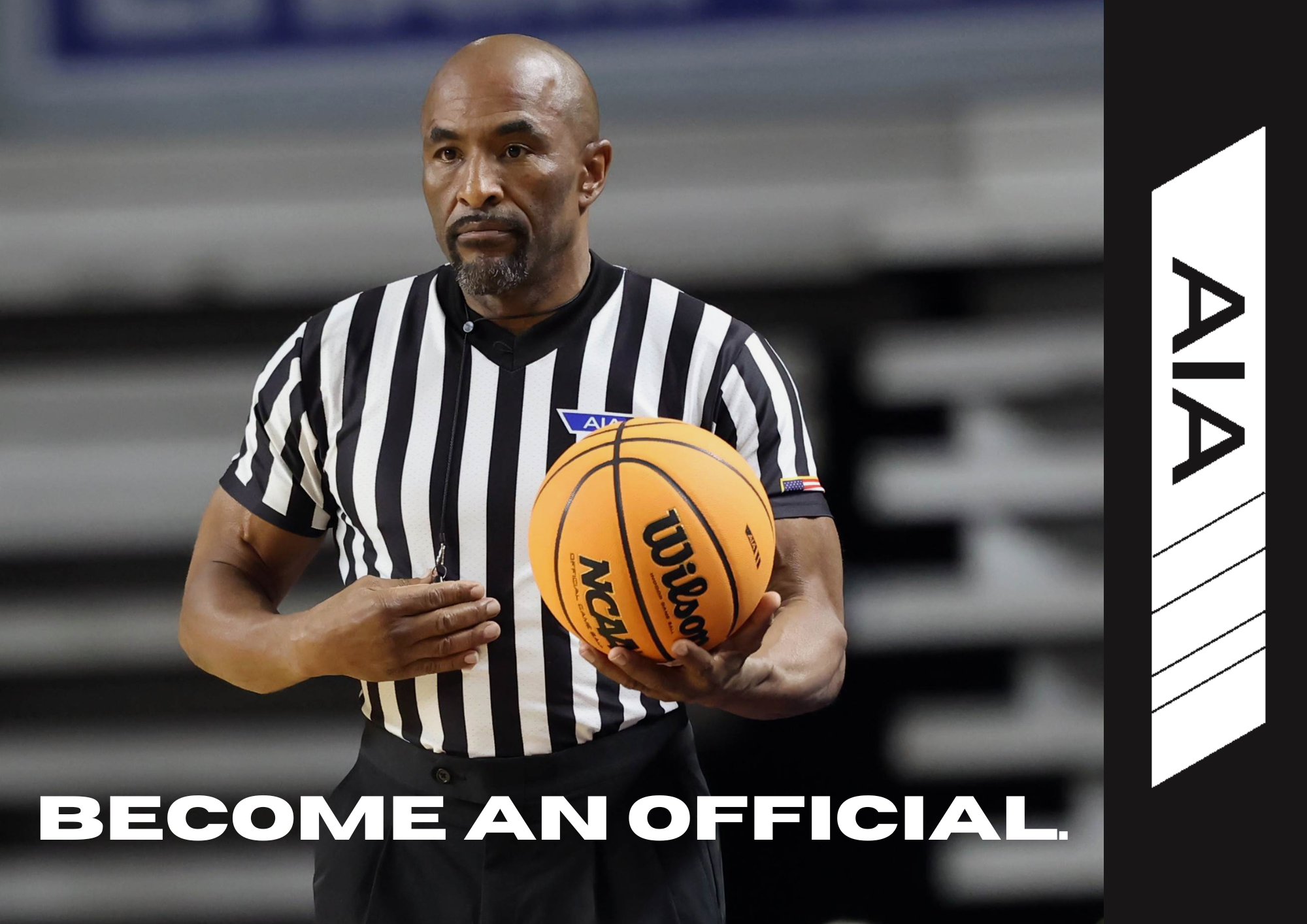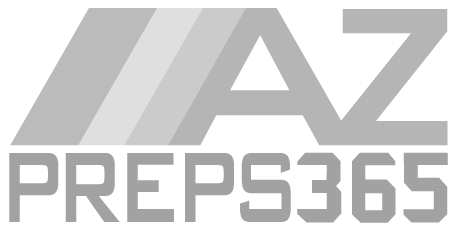AIA board meeting notes
January 20, 2016 by Jose Garcia, AZPreps365
A six percent drop in adult tickets sold and low attendance at the first two rounds of the Division I and II postseason football games contributed to the $60,000 decrease in football gate receipts in the fall, the Arizona Interscholastic Association informed its executive board Tuesday.
The AIA doesn’t lose money by playing the D-I football title game at University of Phoenix Stadium, Dr. Harold Slemmer, the AIA’s executive director, revealed during the board’s monthly meeting. The University of Phoenix Stadium and the AIA have a profit sharing agreement, but if there is a revenue loss University of Phoenix Stadium accrues that.
Stadium officials have always viewed their partnership with the AIA as community outreach. For fall volleyball and soccer, there was also a decrease in attendance but very small, said Denise Doser, the AIA’s director of finance.
The dip in fall Arizona high school playoff attendance also was experienced nationally, Dr. Slemmer said.
To attract more fans, the AIA’s board raised the possibility of moving games to different venues and allowing the higher seeds to host semifinal games. During the discussion, board member Jacob Holiday, the 3A Conference board rep, mentioned Northern Arizona University as a potential host playoff site.
Because of a ticket surcharge NAU wanted to assess for hosting high school playoff games three years ago, the AIA felt it wasn’t fiscally responsible to book games at NAU, Dr. Slemmer said. But Dr. Slemmer did say that the AIA is open to returning to NAU and is a potential site for the 2016 preseason Sollenberger Classic football game.
Executive director report
Governor Doug Ducey’s chief of staff, Kirk Adams, met with Dr. Slemmer and AIA assistant associate executive director David Hines recently to examine the competitive concerns 9th graders are creating by enrolling at out of boundary schools.
A bill on the issue isn’t forthcoming, Dr. Slemmer said during his monthly executive director report to the board. In the exploratory meeting with Adams, Dr. Slemmer and Hines expressed their concerns about the challenges of investigating recruiting allegations of incoming 9th graders.
In his monthly report, Dr. Slemmer also gave the board an update on a nation-wide campaign the National Federation of State High School Associations started to help promote the benefits of participating in high school activities.
A couple of audio clips the AIA created to help the cause were played during Tuesday’s board meeting.
“We want to share the story of our high schools and how we are making them safer,” Dr. Slemmer said. “The health and welfare of our students is our No. 1 priority, and the AIA has shown over the years that we are committed to that goal.”
Speaking of safety, USA Baseball presented a pitch count chart for every age group during the NFHS winter meetings, which Dr. Slemmer attended.
Expect a proposed bylaw to come forth based on USA Baseball’s recommendations, Dr. Slemmer said.
Agenda items approved
The following agenda items were approved by the board unanimously:
—A proposal to allow sand volleyball players to participate in club tournaments during the high school season. Sand volleyball is still a pilot program in Arizona and isn’t “bound” by the non-school participation bylaw (14.4.1).
Participation in sand volleyball will increase this year from 17 to 26 teams.
—A proposal to add another member to the AIA’s board to represent the 6A Conference beginning in 2016-17.
—A proposed amendment to make it easier to allow teams from bordering states to participate against AIA teams in regular season tournaments. The bordering states’ teams currently have to wait until NFHS approves their participation in Arizona tournaments.
Now only non-bordering out of state teams will still have to receive the OK from NFHS before playing in Arizona.
—To give the AIA some postseason scheduling flexibility and schools an opportunity to compete in a big venue, a proposal to change the date of championship games from the 35th to 36th week was accepted. This still has to be approved by the AIA’s Legislative Council in March.
—To give track and field teams enough time to schedule their qualifying meets and because the state meet will start a week earlier, the board gave the go-ahead to allow teams to start their regular season in the 34th week instead of the 35th. The proposal has to be ratified by the the AIA’s Legislative Council in March.
—Phoenix Metro Tech’s application to become a full member school was accepted. Metro Tech will likely participate in the 4A Conference in 2016-17.
—Chandler High’s request to have football coaches Shaun Aguano, Roger Murdock, George Hawthorne, and Rick Garretson participate for Team USA in a Jan. 31 international bowl game against Canada at AT&T Stadium in Dallas.
—A request for individual sports to remain classified as divisions and sections for the 2016-17 season.
—The Peoria District’s request to host an additional tennis tournament. The tournament will be held April 1 at Liberty High.
—A hardship appeal for a former Millennium girls basketball player to attend Valley Vista High School.
—Ray basketball coach Aaron Chenoweth’s complimentary pass replacement request.
School violations
The executive board approved the AIA’s recommendation to place Mohave’s boys soccer program on probation for one year because one of its players pushed an official.
Teams on probation can’t participate in the postseason, but Mohave can appeal the board’s decision and request a special meeting with the executive board. The soccer state brackets are scheduled to be released Jan. 29, and Mohave was ranked No. 3 in the Division III power rankings.
Dr. Slemmer said that Mohave’s corrective action, a meeting with players and coaches to review good sportsmanship expectations, was not enough.
The following schools received a warning for violations they self reported:
—Deer Valley for allowing a wrestler to practice for 10 days and wrestle in a match without having been cleared by its athletic office.
—Ironwood for ending a boys soccer game early because the coach believed his team was in a “unsafe” situation playing with just nine players.
—Rancho Solano Prep for failing to keep a coach and fans away from a locker room for officials after a tournament game.
—Shadow Mountain for a coach going into the officials’ locker room after a tournament loss.
—Shadow Mountain also received another warning because a coach sat on a bench during a tournament game he wasn’t supposed to participate in.
The following programs received an advisement for violations they self reported:
—Cortez High School for clearing a basketball player who transferred from Apollo. The player's mom was still living in the Apollo boundary and a custody change hadn't taken place.
—Poston Butte for a melee that broke out during a soccer match. The intervention by the school and corrective action was lauded by Dr. Slemmer.
—Estrella Foothills. A varsity assistant returned to a soccer stadium after being ejected. The coach was eventually suspended for two games and three practices.
—Liberty for having its cheer team violate bylaw 11.2 (scheduling of contests).
The board voted 4-3 to deny Alhambra’s request to rescind three boys soccer losses for unknowingly violating the age limit bylaw. The two non-starters who violated the bylaw didn’t have their paperwork in order.



